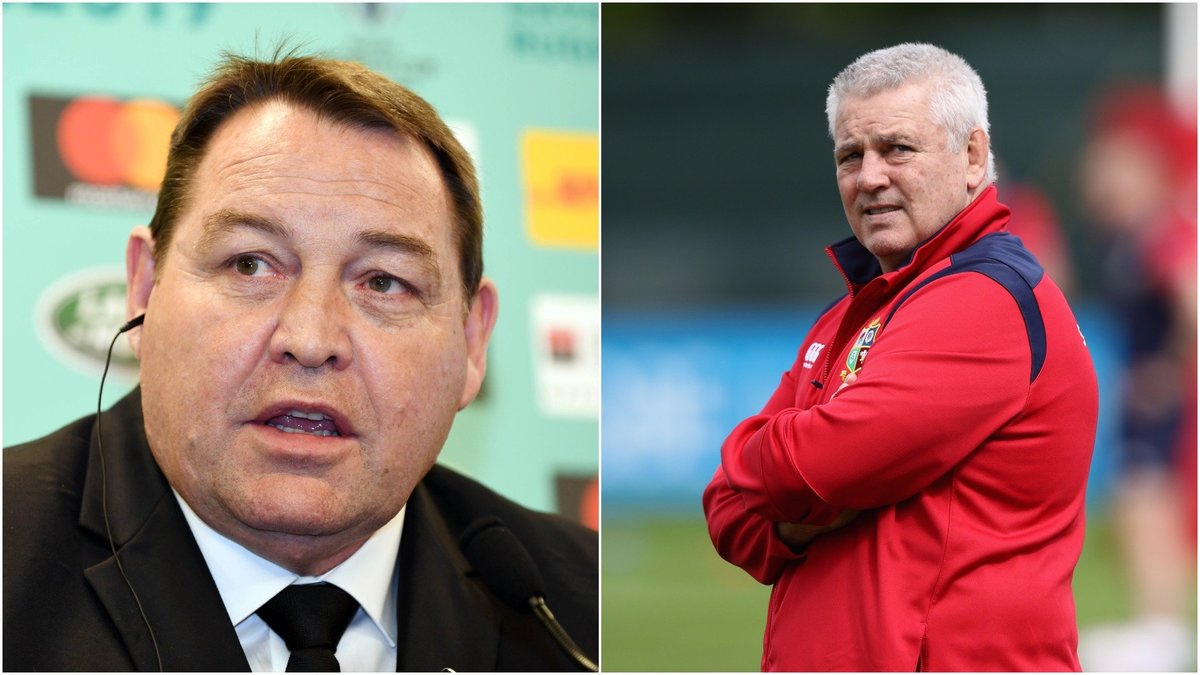Lions 2017: The strengths and weaknesses of Gatland and Hansen

It is almost time for one of the highlights of the rugby union calendar: another British and Irish Lions tour.
The Lions venture to New Zealand this year and will take on the two-time reigning world champions in three Tests in their own back yard.
The Lions have not returned victorious from a tour against the All Blacks since 1971, losing their last four – the most recent of which was a 3-0 whitewash in 2005.
In Warren Gatland, the Lions possess a coach who has already guided them to victory once previously and has knowledge of New Zealand having been born and raised there.
His counterpart Steve Hansen has taken the All Blacks into the most successful era in their history and the clash of wits between them promises to be just as intriguing as the on-field battle.
Here, we assess each coach’s areas of strength and weakness.
Make sure you save the dates for the 2017 Tour! https://t.co/ruY18iHnJe #allforone pic.twitter.com/lGXkY4H0Zp
— British & Irish Lions (@lionsofficial) May 26, 2017
Strengths
The clearest positive for Gatland is that he already has experience of leading the Lions on a victorious tour.
The 53-year-old was in charge for the 2013 trip to Australia that ended in a 2-1 series triumph, engineering an emphatic 41-16 third-Test win in Sydney. Furthermore, he has coached Wales for the last 10 years and will have accumulated a wealth of knowledge about the players he has picked.
Gatland is also a New Zealand native and has worked at Waikato and Chiefs, so he understands the very essence of what makes the All Blacks such a formidable side. However, he will no doubt call upon the experience of the eight Ireland players in the set-up who took part in the 40-29 win over Hansen’s side in Chicago that ended their record run of 18 straight Test victories in November.
Weaknesses
Gatland’s last experience of a tour to New Zealand was not a good one. His Wales side suffered three resounding defeats at the hands of the All Blacks last year as well as a 40-7 thumping from Super Rugby side Chiefs, albeit with a heavily rotated side. The closest margin in any match was 14 points when they went down 36-22 in the second Test in Wellington, while a 46-6 thrashing in Dunedin completed the whitewash.
Gatland has also been faced with criticism over a perceived Welsh bias in his selections. He came under fire when he dropped Brian O’Driscoll for Jamie Roberts and an all-Wales centre pairing in the final match in 2013. However, that decision was vindicated as the Lions romped to victory.
"Everyone will get an opportunity…"
Every player starts with a chance of making the Test XV, says Warren Gatland: https://t.co/ro75ASSBUr pic.twitter.com/Dd4QTiD8Tf
— British & Irish Lions (@lionsofficial) April 19, 2017
Hansen has been part of the All Blacks set-up since 2004, when he was drafted in as an assistant to Graham Henry. Their partnership culminated in glory at the 2011 Rugby World Cup and Hansen repeated the feat in England four years later when he took full control, making New Zealand the first nation to successfully defend the Webb Ellis Cup.
He has since guided the team through a hugely successful transition after the retirements of Richie McCaw, Dan Carter, Ma’a Nonu, Keven Mealamu and Conrad Smith – the highlight being an 18-Test winning streak that included the 2016 Rugby Championship title. Although the run ended with that defeat to Ireland in November, the All Blacks bounced straight back with victories over Italy and France, either side of gaining revenge over Joe Schmidt’s side.
He has an incredible wealth of talent at his disposal, including arguably the world’s best fly-half in Beauden Barrett, and has knowledge of the northern hemisphere from a stint in charge of Wales between 2002 and 2004.
Weaknesses
While his team will be gearing up for what promises to be a blockbuster series, Hansen has made it clear that he is already contemplating winding down his career. The 58-year-old said this week he does not envision himself remaining in charge beyond the 2019 World Cup in Japan, though he admitted he is not 100 per cent committed to that decision. Could the uncertainty unsettle the usually unflappable All Blacks?
His side will also come up against Rory Best, the hooker who skippered Ireland to the famous victory in Chicago. With Best able to share his thoughts on how to overpower New Zealand’s forwards, Hansen will need to get the most out of his pack to stop his side coming under unfamiliar pressure from the Lions.
All Blacks coach Steve Hansen says @lionsofficial squad to tour NZ could be one of the best ever.
READ: https://t.co/tQTdOoiuRi pic.twitter.com/H7O6mnJQxZ
— All Blacks (@AllBlacks) March 13, 2017

















































